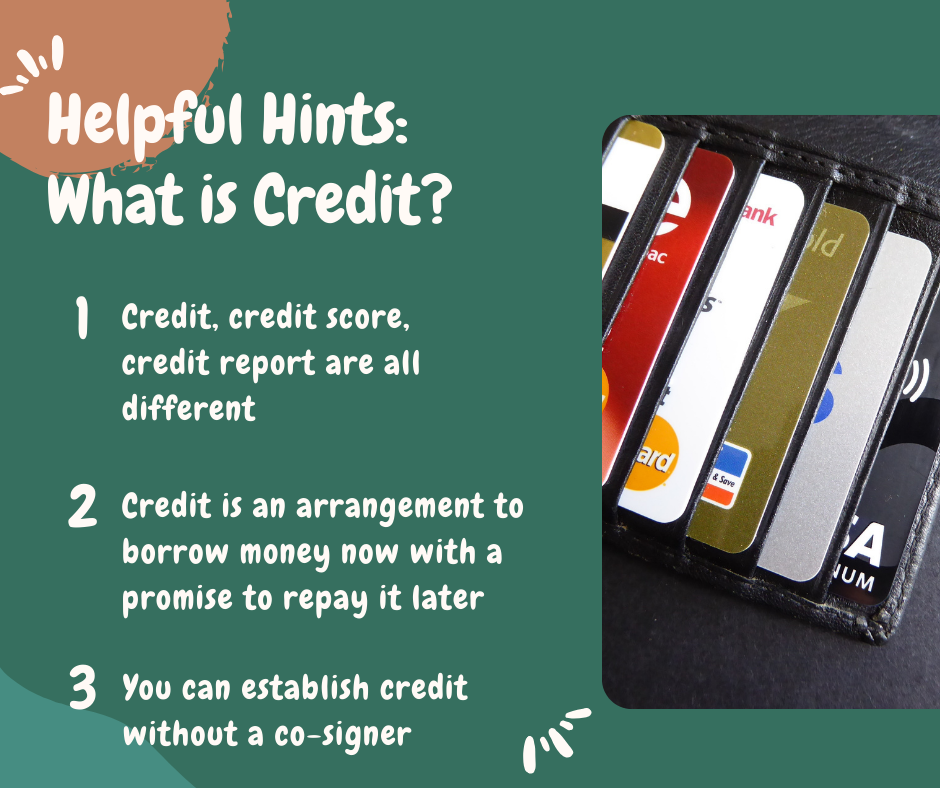By Sabine Love, CAP Service-Learning Intern
Feature on credit, blog 1 of 2, precedes Building Credit blog.
For one, I feel that the knowledge of the world of credit truly is a terrifying separator between thinking you’re an adult and being an adult. But is the “world of credit” truly that scary? In my experience, I have come to understand that credit can be helpful for young adults, particularly people who are supporting themselves, starting out on their own.
Let’s start with credit and credit score and credit report. Although they sound similar and both play significant roles in your financial health, they are quite different and play equally different roles.

- Credit is an arrangement to borrow money now with a promise to repay it later, often with interest.
- Your credit score, however, is determined by your credit history and determines your credit risk, an indication as to how likely you are to repay your loans. Potential lenders use the credit score to determine whether they want to issue you credit, such as a mortgage, credit card, auto loan, etc.
- Your credit report is issued by credit bureaus (Equifax, Experian, TransUnion, Innovis) that shows your credit history (lines of credit you have open). Remember to check your reports at least once a year to make sure there are no errors.
Now that we have the basics with definitions down, let’s answer some common questions:
How to establish Credit when you don’t have a history of credit?
Many may not know that credit can be established without having to ask another person with credit to co-sign for you or make you an authorized user on their credit card. You can apply for a credit account that is tailored to people that are new to credit. You can ask your bank about limited credit lines, or pre-paid credit cards that build credit.
Even if you have never opened a line of credit, you can generate a credit report and check your credit history now. Things like utility payments and rent can be used to help build your credit if regular on time payment records are reported to the credit bureau.
Getting your Free Credit Report
- Visit AnnualCreditReport.com or call 1-877-322-8228
- Complete the Annual Credit Report Request Form and mail it to: Annual Credit Report Request Service, P.O. Box 105281, Atlanta, GA 30348-5281
- Or, contact the three nationwide credit reporting companies individually to request your report (see below).
This piece is one in a series of Helpful Hints brought to you by the Consumer Assistance Program’s (CAP) service-learning interns. UVM undergraduate students make significant contributions to our program and Vermont through their participation in our service-learning lab, where they learn about consumer protection while honing their professional skills.
Please note, the information herein is provided for educational purposes and does not constitute legal advice. Consumers with general consumer questions should contact CAP for more information, or seek private counsel from an attorney for legal advice.
References:
